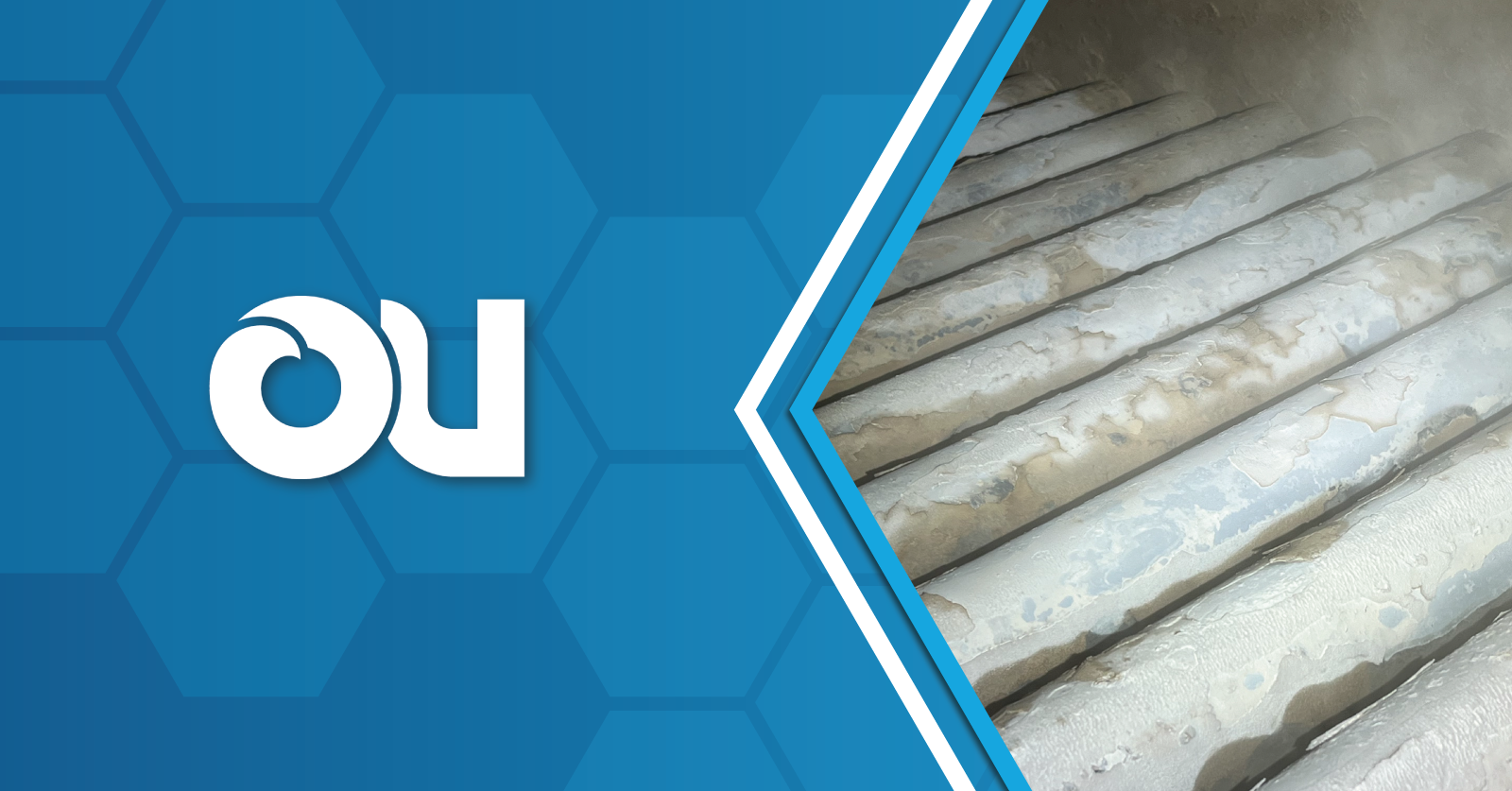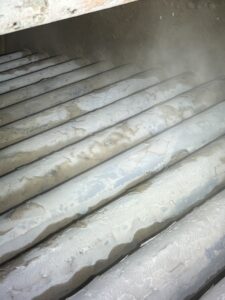Silica Buildup Leads to Equipment Failure
The Scenario
When time is money, a race against the clock is almost always a losing battle. The threat of equipment failure and stalled systems looms ominously over most of the industrial sector, prompting manufacturers across its diverse segments to minimize risking a prolonged shutdown whenever possible. Still, seasoned operators know that production interruptions are not questions of “if,” but “when.” One facility recently learned “when” after a vital piece of equipment went into sudden shutdown – halting the manufacturers in their tracks. The culprit was a boiler, which, until then, had been operating around the clock to handle the facility’s high processing volume. To minimize the compounding costs of a prolonged interruption, the facility turned its race against time into a relay by passing the baton to Operators Unlimited (OU).
The Problem
It is no secret that hard water wreaks havoc on machinery, reducing the efficiency and overall lifespan of process pipes and adjacent equipment. Here the facility relied on well water, the hardness of which was known to be inconsistent at best. Groundwater tends to be much harder than surface water due to higher concentrations of dissolved minerals. In some cases, groundwater can even contain traces of heavy metals. This well had a silica problem, with concentrations ranging between 20 and 30 parts per million (ppm). Conversely, surface water silica concentrations are negligible – hovering at approximately 5ppm.
Although a softener system was incorporated for calcium and magnesium removal, issues with its initial installation by an outside vendor and a lapse in oversight amid the fast-paced facility left early warning signs unnoticed. The softener backwash and regeneration water had been quietly returning to the make-up water system for some time. Furthermore, as the process utilized all condensate, no condensate was available to dilute the silica concentration. The system shutdown finally occurred once boiler water began leaking into the firetubes due to excessive heat caused by scaling and silica hardness buildup.
The Solution
The facility reached out to OU during this stressful time. When OU’s team surveyed the system, they discovered the boiler’s tubes had amassed a layer of silica and calcium scale over half an inch thick. Because the facility cannot control its inlet water hardness, OU’s expert operators offered solutions designed to neutralize the effects of their specific source water. While typically helpful, the term hard water occasionally fails to convey the nuances of water’s composition. Here, ambiguity and imprecision laid the groundwork for the eventual system failure. Silica specifically is prone to significant scaling when brought to high temperatures like that of a boiler, and typical boiler treatment regimens are not equipped to treat high concentrations of silica like those seen in this facility.
Armed with a comprehensive chemical profile of the facility’s source water, OU’s process specialists recommended a new bottle softener system and an automatic boiler blowdown controller to prevent reoccurring scale buildup. Further safety guards included new boiler control parameters and a specialized chemical program that would allow for single-measurement concentration monitoring.
The Results
Without a functioning boiler, production was in a state of paralysis. Repairs to the boiler cost the facility approximately $20,000 in total, a fraction of the $72,000 they were losing daily in unrealized product. The OU team brought the boiler back to functionality in record time, cutting no corners in their development of a lasting solution that would fit the facility’s needs long-term.
OU operators will continue servicing the company’s boiler by testing the feed water, the boiler water itself and monitoring the system’s makeup water. Cost for this service is far less annually than boiler repairs and plant shutdown. Having already seen their investment returned, OU is proud to remain a trusted part of their ongoing productions. Contact Operators Unlimited today to get your production process back on track or to learn how we can help you prevent pesky pauses.






